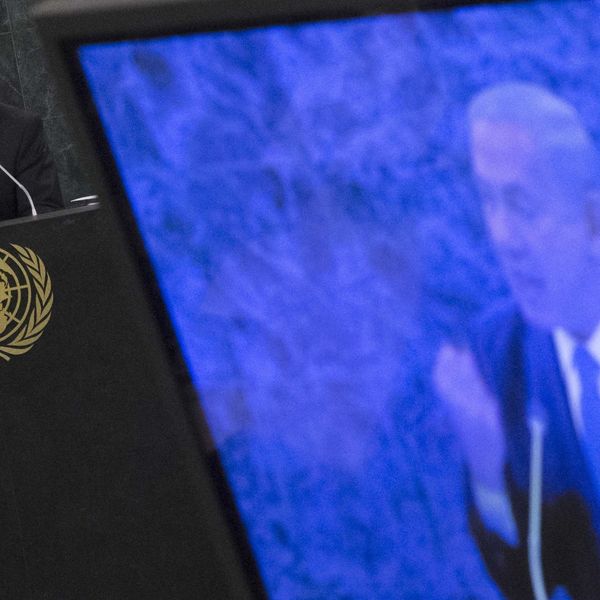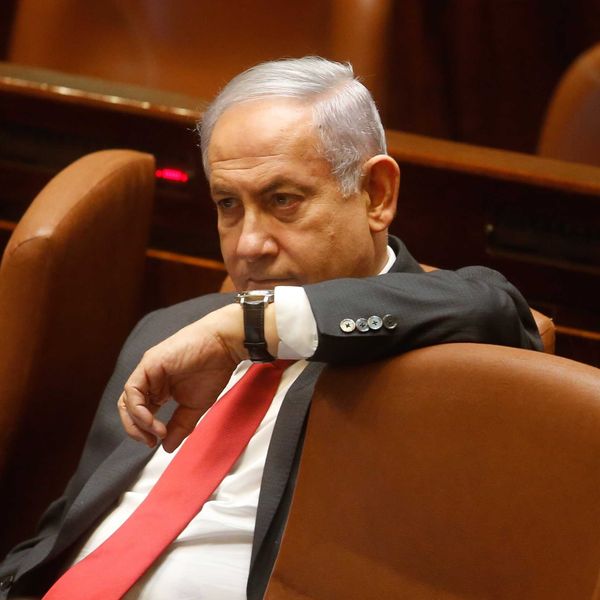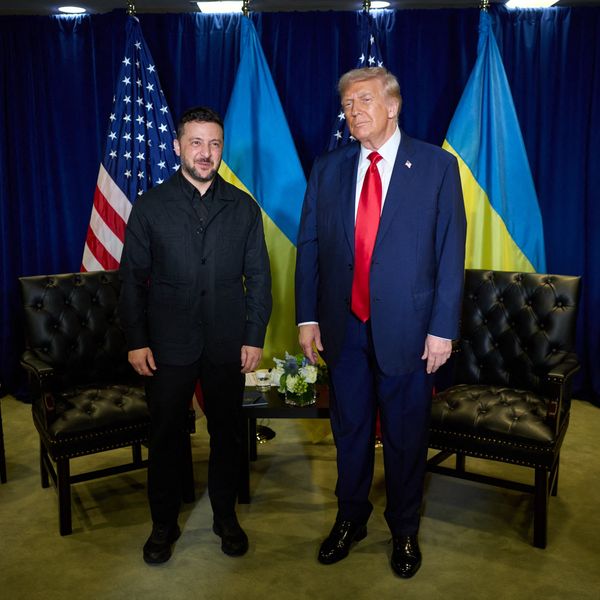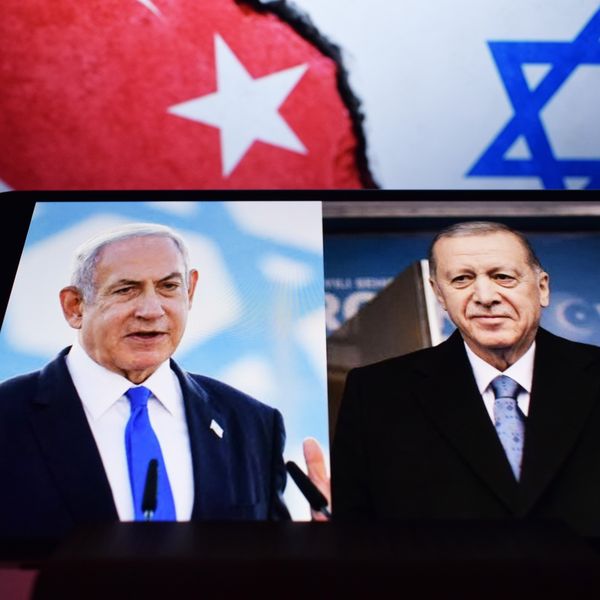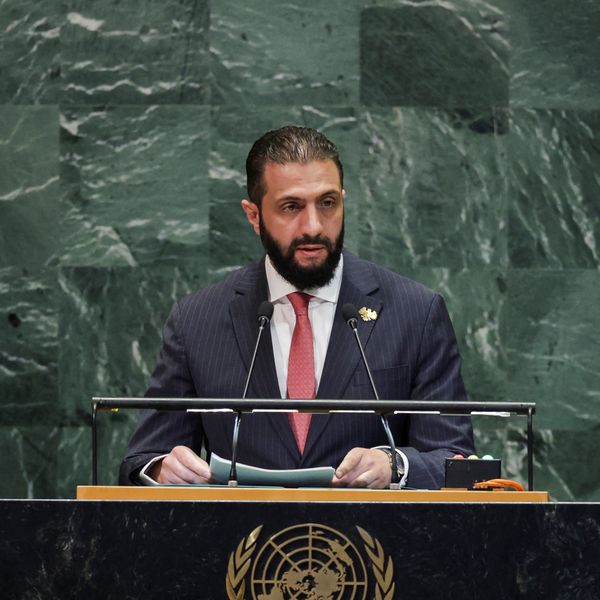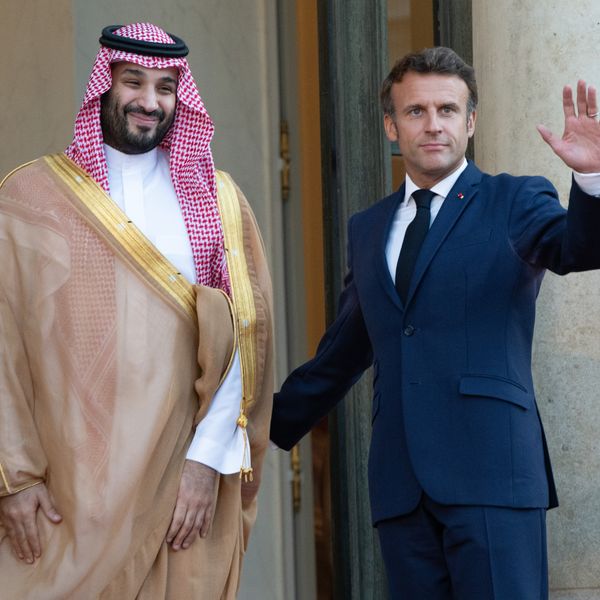The State Department's special envoy for Syria at a congressional hearing on Wednesday admitted to helping Republican donors score a deal for Syrian oil.
Sen. Lindsey Graham (R–S.C.) first announced in July that U.S.-backed, Kurdish-led forces had granted an American company a deal to “to modernize the oil fields” in areas of northeastern Syria guarded by U.S. troops.
Special Envoy Joel Rayburn confirmed during Wednesday’s House Foreign Affairs Committee hearing that the company is Delta Crescent Energy, a little-known firm cofounded by several people who have donated to Republican causes, including Graham’s own campaign.
Rayburn also admitted that the Trump administration had actually pushed for Delta Crescent Energy — and no other companies — to receive permission to exploit Syrian oil.
“We didn’t lobby anyone for the deal,” Rayburn said, but “we’ve met with members of that company, with local authorities, with [Iraqi Kurdish official] Nechirvan Barzani.” (The New Republic had first reported on the meetings several months ago.)
Rayburn also said that the State Department issued “foreign policy guidance,” after which the U.S. Treasury granted a special sanctions exemption for Delta Crescent Energy.
“Did you discuss deals for any other American companies?” Rep. Joaquin Castro (D–TX) asked.
“Not that I was involved in,” Rayburn responded.
The Syrian Kurdish-led autonomous authorities in northeastern Syria that control the oil fields in conjunction with U.S. forces have expressed their desire to work with multiple foreign companies.
Americans are currently banned from dealing with Syrian oil under U.S. economic sanctions on Syria, and Delta Crescent Energy is the only firm known to have been granted an exemption to the sanctions by the U.S. Treasury.
It is unclear how much work on Syria’s oil fields Delta Crescent Energy has actually completed. Syrian Kurdish general Mazloum Kobane told Al Monitor last month that talks about exporting the oil were “advancing slowly.”
Delta Crescent Energy was founded by U.S. Army Delta Force veteran James Reese, former diplomat James Cain, and former GulfSands Petroleum executive John P. Dorrier Jr. The firm is well-connected to both Republican circles and the U.S. military.
Cain is a long-time Republican activist who served on the Republican National Committee from 2003 to 2005. He has donated at least $30,681 to Republican causes since 2003, records from the Federal Election Commission show.
Dorrier has donated $6,947 to Republican causes since 2016, including a $500 donation to Graham’s campaign in 2019. Dorrier’s only pre-2016 political donation listed in the FEC filings is a $500 donation to the Republican National Senatorial Committee in 2005.
Reese now runs a controversial private security firm called TigerSwan.
TigerSwan first rose to prominence in 2016 when it helped suppress Native American and environmentalist protests against an oil pipeline in North Dakota. The firm recently settled a lawsuit for operating without a license in North Dakota and is embroiled in an alleged bribery scheme in Pennsylvania, although it denies all wrongdoing.
TigerSwan has also been active in Syria, helping guard U.S.-backed demining operations in the city of Raqqa, according to a 2018 report from the New Yorker. The Department of Defense has acknowledged but not yet responded to a Freedom of Information Act request filed by this reporter in September to obtain TigerSwan’s contract.
Syria’s oil became a priority for the Trump administration in October 2019, when Trump declared his desire to withdraw from Syria.
The Trump administration had convinced Syrian Kurdish forces to destroy their fortifications along the border with Turkey, promising that a U.S.-led peacekeeping force would protect the area.
Trump reversed course in October 2019, pulling troops out and allowing a Turkish invasion. But he reversed course again soon after, sending troops back into Syria “to secure the oil.” Graham and other hawks had used the oil issue to sell Trump on a continued U.S. presence in Syria.
“By continuing to maintain control of the oil fields in Syria, we will deny [Syrian ruler Bashar al-Assad] and Iran a monetary windfall,” Graham said in an October 2019 statement. “We can also use some of the revenues from future oil sales to pay for our military commitment in Syria.”
Trump said a few days later that he and Graham “totally agree” on the oil.
Syria’s central government has condemned the reports of American oil activities as a scheme to “steal Syria’s oil” and “an assault against Syria’s sovereignty.”
Rayburn, however, argued on Wednesday that Delta Crescent Energy is in Syria to benefit the locals.
“We support trying to get the economy of northeast Syria up and running to the extent it can under the present conditions of war,” he said. “We’re talking about the communities that were victimized by ISIS.”
But the founders of Delta Crescent Energy itself may not see it in such benevolent terms.
“We own the whole eastern part of Syria,” Reese said in an April, 2018 interview with Fox News, explaining what the U.S. strategy in the Middle East should be. “That’s ours. We can’t give that up.”





